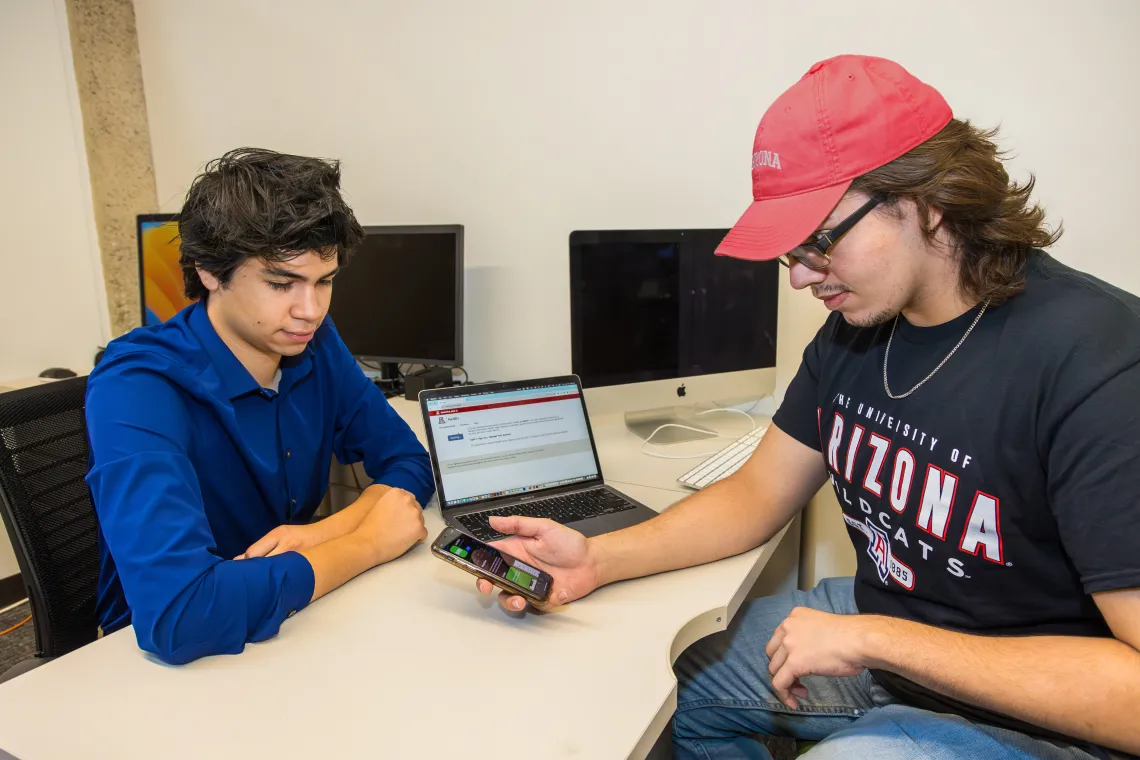What’s New in Student Tech—Fall 2023
Getting tech support is now easier with more locations

Tech Zones
Want help with your laptop or phone? The four OSCR computer labs (Office of Student Computing Resources) now also provide hands-on tech support.
The labs are renamed as Tech Zones. They're still convenient when you need to work on a project, print a paper, or get help using software. But now you can also get assistance with:
- University systems, such as NetID and 2FA/Duo, UAWiFi, CatMail, D2L, and more
- Your personally owned devices (laptop, smartphone, etc.)
The Tech Zone consultants have the same extensive training as 24/7 Support Center employees. As before, consultants can troubleshoot and do their best to assist with your personally owned technology, but don’t do device repair work.
When you visit the Main Library lower level, you’ll see that the 24/7 Lounge has moved to the OSCR Tech Zone area. The other three OSCR lab locations are Tech Zones with in-person support, as well:
- Student Union Memorial Center (lower level)
- South Rec Center
- Student Union Global Center (upstairs)
Support services will be available during Tech Zone open hours. The 24/7 Support Center continues to be available for phone and chat help around the clock—247.arizona.edu.
CatCloud
Your all-in-one portal for accessing your student information continues to add features. Now you can work with your advisor on a Personal Program Plan in CatCloud. Use the Plan feature to build your four-year portfolio, including courses, internships, work experience, volunteering, and more. Set yourself up for success in reaching your degree and beyond!
And you can still use CatCloud to make each semester a success:
- Make an appointment with your advisor.
- Work with them to plan your next semester’s courses.
- Track your assignments calendar, grades, and progress towards grade goals week by week.
- Keep tabs on your Meal Plan and CatCash balances.
Safe Links
The University has added a new feature to Office 365 to help prevent your computer or devices from getting infected.
When you’re using Microsoft applications, Microsoft Safe Links now performs an immediate review of URLs (website addresses) and compares them to a list of known malicious sites. When you click a link, you usually will not notice the review, as it goes so quickly. But you may see the Safe Links site: nam11.safelinks.protection.outlook.com
If the original URL is for a known unsafe site, Safe Links will pop up a warning to not continue.
Find out more information on phishing and other ways to keep your information secure.

